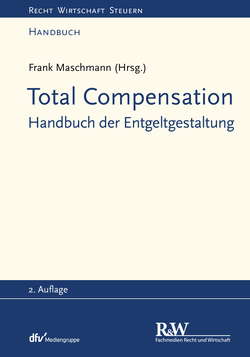Читать книгу Total Compensation - Frank Maschmann - Страница 20
Kapitel 2 Vergütung und Motivation
ОглавлениеSchrifttum: Al-Ubaydli/Andersen/Gneezy/List, Carrots That Look Like Sticks: Toward an Understanding of Multitasking Incentive Schemes, Southern Economic Journal 2015, 538; Bandiera/Barankay/Rasul, Social Preferences and the Response to Incentives: Evidence from Personnel Data, Quarterly Journal of Economics 2005, 917; Bandiera/Barankay/Rasul, Field Experiments in Firms, Journal of Economic Perspectives 2011, 63; Bénabou/Tirole, Incentives and Prosocial Behavior, American Economic Review 2006, 1652; Blanesi-Vidal/Nossol, Tournaments without Prizes: Evidence from Personnel Records, Management Science 2011, 1721; Bolton/Dewatripont, Contract Theory, 2005; Camerer, Behavioral Game Theory, 2010; Card/DellaVigna/Malmendier, The Role of Theory in Field Experiments, Journal of Economic Perspectives 2011, 39; Deaton, Instruments, Randomization, and Learning about Development, Journal of Economic Literature 2010, 424; Dumont/Fortin/Jacquemet/Shearer, Physicians’ Multitasking and Incentives: Empirical Evidence from a Natural Experiment, Journal of Health Economics 2008, 1436; Englmaier/Leider, Contractual and Organizational Structure with Reciprocal Agents, American Economic Journal: Microeconomics 2012, 146; Englmaier/Roider/Sunde, The Role of Communication of Performance Schemes: Evidence from a Field Experiment, Management Science 2017, 4061; Falk/Fehr/Fischbacher, Testing Theories of Fairness – Intentions Matter, Games and Economic Behavior 2008, 287; Falk/Heckman, Lab Experiments are a Major Source of Knowledge in the Social Sciences, Science 2009, 535; Fehr/Kirchsteiger/Riedl, Does Fairness Prevent Market Clearing?: An Experimental Investigation, Quarterly Journal of Economics 1993, 437; Fehr/Schmidt, Theories of Fairness and Reciprocity – Evidence and Economic Applications, 2003; Gans/Leigh, Born on the First of July: An (Un)natural Experiment in Birth Timing, Journal of Public Economics 2009, 246; Gerber/Green, Field Experiments: Design, Analysis, and Interpretation, 2012; Gibbons/Murphy, Optimal Incentive Contracts in the Presence of Career Concerns: Theory and Evidence, Journal of Political Economy 1992, 468; Gibbons/Roberts (Hrsg.), Handbook of Organizational Economics, 2013; Gneezy/List, Putting Behavioral Economics to Work: Testing for Gift Exchange in Labor Markets Using Field Experiments, Econometrica 2006, 1365; Gneezy/Meier/Rey-Biel, When and Why Incentives (Don’t) Work to Modify Behavior, Journal of Economic Perspectives 2011, 191; Gneezy/Rustichini, A Fine Is a Price, Journal of Legal Studies 2000, 1; Gneezy/Rustichini, Pay Enough or Don’t Pay At All, Quarterly Journal of Economics 2000, 791; Holmstrom/Milgrom, Multitask Principal-Agent Analyses: Incentive Contracts, Asset Ownership, and Job Design, Journal of Law, Economics, and Organization 1991, 24; Hossain/List, The Behavioralist Visits the Factory: Increasing Productivity Using Simple Framing Manipulations, Management Science 2012, 2151; Kagel/Roth/Hey (Hrsg.), Handbook of Experimental Economics, 1995; Kahneman/Tversky, Prospect Theory: An Analysis of Decision under Risk, Econometrica 1979, 263; Koszegi, Behavioral Contract Theory, Journal of Economic Literature 2014, 1075; Kube/Maréchal/Puppe, The Currency of Reciprocity: Gift Exchange in the Workplace, American Economic Review 2012, 1644; Laffont/Martimort, The Theory of Incentives: The Principal-Agent Model, 2009; Lazear, Performance Pay and Productivity, American Economic Review 2000, 1346; List, Why Economists Should Conduct Field Experiments and 14 Tips for Pulling One Off, Journal of Economic Perspectives 2011, 3; Plott/Smith (Hrsg.), Handbook of Experimental Economic Results, 2008; Prendergast, The Provision of Incentives in Firms, Journal of Economic Literature 1999, 7; Schweizer, Spieltheorie und Schuldrecht, 2015; Schweizer, Vertragstheorie, 1999; Sliwka, Trust as a Signal of a Social Norm and the Hidden Costs of Incentive Schemes, American Economic Review 2007, 9.
Übersicht
| I. Vergütung und Motivation: Eine mikroökonomische Perspektive | 1 |
| II. Methodischer Hintergrund | 4 |
| 1. Theoretische ökonomische Modelle | 4 |
| 2. Laborexperimente | 7 |
| 3. Feldexperimente | 12 |
| III. Die Prinzipal-Agenten-Theorie | 14 |
| 1. Grundannahmen | 14 |
| 2. Hauptvorhersagen | 18 |
| 3. Erweiterung: Mehrere Tätigkeiten | 21 |
| IV. Empirische Evidenz zu Vegütung und Motivation | 24 |
| 1. Anreizeffekte bei einfachen Tätigkeiten | 24 |
| 2. Mehrere Tätigkeiten | 27 |
| 3. Monetäre Anreize und intrinsische Motivation | 30 |
| 4. Fixlöhne und Reziprozität | 35 |
| 5. Soziale Vergleichsprozesse | 39 |
| a) Bereitstellung von relativen Leistungsinformationen | 40 |
| b) Relative Entlohnung | 41 |
| 6. Framing-Effekte | 42 |
| V. Neuere verhaltensökonomische Ansätze | 46 |
